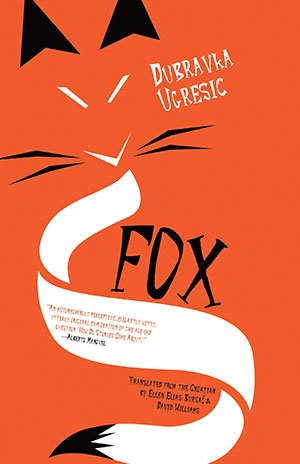by Andrea Scrima
“If the spirit of the fox enters a person, then that person’s tribe is accursed.”
1.

In his 1953 essay “The Hedgehog and the Fox,” which postulates two quintessential moral dispositions at the heart of history’s main opposing ideologies, Isaiah Berlin divides the world’s influential writers into two categories of thought. Elaborating on Berlin’s dichotomy in her latest book Fox, which came out the spring of 2018 in English translation, Dubravka Ugrešić distinguishes between “those who write, engage, and think with recourse to a single idea (hedgehogs), and those who merge manifold heterogeneous experiences and ideas (foxes).” Clearly, the fox sounds more enticing; Berlin equates the hedgehog with authoritarianism and totalitarianism, while the fox is deemed liberal and tolerant. The only problem is the questionable reputation it’s earned among the world’s oldest mythologies, fairytales, and legends: whatever it might have going for it in the way of “pluralistic moral values,” the fox has long been accused of “cunning, betrayal, wile, sycophancy, deceit, mendacity, hypocrisy, duplicity, selfishness, sneakiness, arrogance, avarice, corruption, carnality, vindictiveness, and reclusiveness.” That’s quite an indictment—and all the more reason for Ugrešić to select the wily animal as patron saint of her new book.
Fox is subtle, virtuosic, and jarring; it’s also mordantly funny. In light-footed, deceptively playful detours and digressions, the book skips from Stalinist Russia to an American road trip with the Nabokovs, academic conferences and literary festivals to the largely untold story of the Far-East diaspora of persecuted Russian intellectuals on the eve of World War II. Fox is a novel, but its formal structure poses a challenge; some chapters read as essays, some as autonomous short stories, and while many recurrent threads reveal themselves upon closer inspection and reflection, it requires attention to unravel the author’s narrative strategy. Read more »
